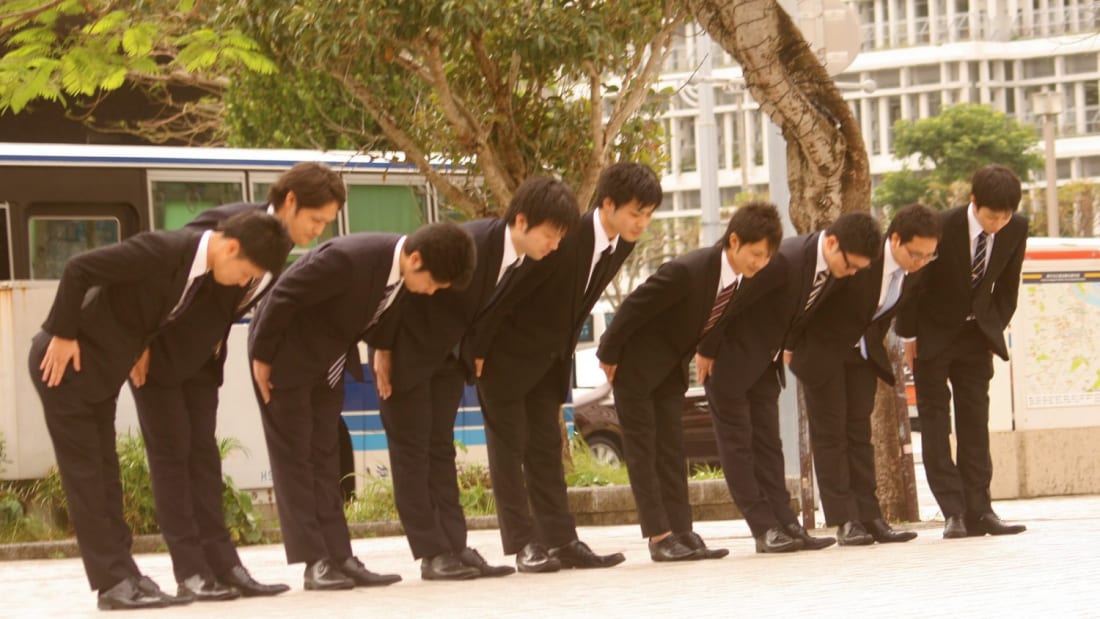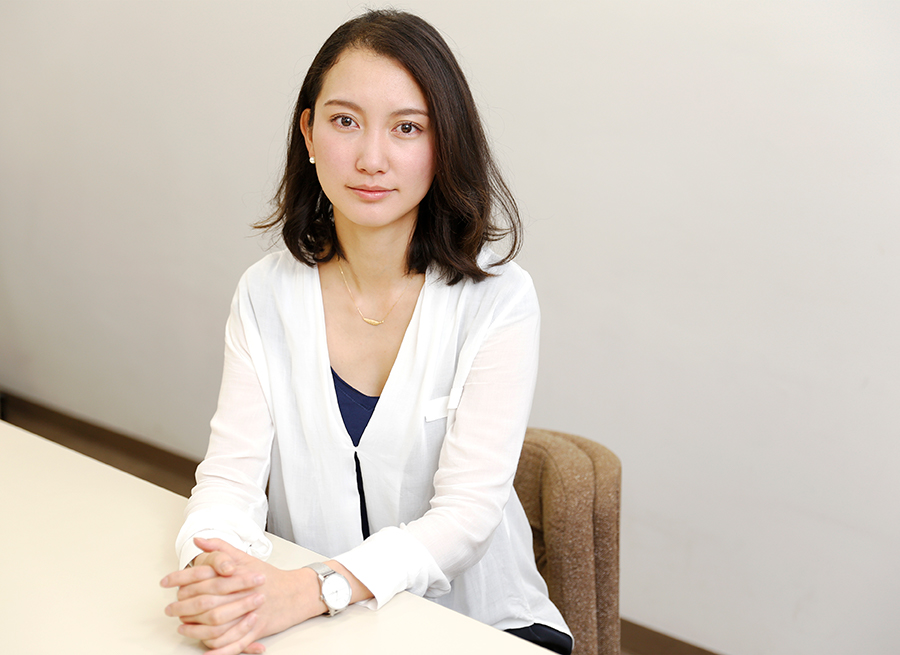“What was the longest stake-out you had to do?”
Kurokawa-san looks vacantly across the six-by-ten shack, a lit cigarette perched between his fingers, as he contemplates this question.
“Two days?” he estimates.
“If you wait long enough, you can eventually find anyone,” he insists, almost defensively, as though this were a debate he could lose, and launches into the following analogy:
“I mean, I’m not here very often, am I?” He gestures in a way that takes in the entire tiny shack. The three-foot-high pile of woodchips and nettles that had acted like a barricade outside the front door are strong evidence in favor of this.
“But if someone wanted to find me,” he continues darkly, “If they waited here for a long time, a long long time, eventually I would come here, right?”
Kurokawa never does explain why he chose to be interviewed in this neglected shack in the middle of the Shizuoka countryside, a 40-minute walk through a tunnel from the nearest bus stop. His company, which is the subject of the interview, doesn’t have a physical office. This shack that he owns, with a couple of half-couches around a small table in one corner and a single desk taking up the space remaining, is the closest thing. Still — it’s a weird choice. A cafe in Tokyo would’ve made a lot more sense. Or pretty much anything else.

This is a perfectly normal place to meet a subject for an interview.
His argument on the efficacy of the stake-out won, he settles back more comfortably into the half-couch and takes another drag on his cigarette.
This is the same method the company uses in finding their “targets:” gather some intel on the target (workplace, home address, etc.), then sit and wait.
With his set face and massive frame, Kurokawa is not someone you would want to find in a parked car outside your apartment. But he (or, rather, his agents) aren’t looking for a fight. Once the stake-out comes to fruition and the target is locked, the agent will snap into action, corner the target, and deliver — an apology.
Introducing Japan’s Apology Agency
Kurokawa is the founder and manager of Shazai-daikou — The Apology Agency.
The Apology Agency opened in 2014 and today Kurokawa manages an army of 120 “apology agents” scattered throughout Japan from Hokkaido to Kagoshima.
Here’s a basic breakdown of how the agency works:
Kurokawa receives apology requests over the phone or through a submission form on his website (http://shazaiya.com/). It seems like his clients can be grouped into two basic categories: a company dealing with an irate customer or an unfaithful spouse. The client explains the nature of the apology they need performed and the area in Japan where they live (most apologies are conducted face-to-face, though over-the-phone is also an option).
Based on this, Kurokawa delegates the request to the most suitable agent, who will then assume the identity of the apologizer— that is, an employee at the company under attack (they’ll even make fake business cards) or the former lover of the cheating spouse. With the target intel provided by the customer, the agent will begin the stake out.
“If you wait long enough, you can eventually find anyone.”
When the target finally appears, the agent, utilizing the most formal and extreme of Japan’s many tiers of apology, will get on his hands and knees dogeza-style, prostrating himself before the dissatisfied customer or cuckolded husband. The target is always taken by surprise and, according to Kurokawa, always accepts the apology with minimal trouble.
“It’s not a normal company,” Kurokawa summarizes a few times matter-of-factly.
How It All Began
The idea of hiring someone to impersonate someone in order to deliver an apology is not so outlandish in Japan as it might be in another country. Or, at least, the practice is common enough to justify several companies that have sprung up in the past few years offering this service. Kurokawa will tell you proudly, though, that his is the only company exclusively committed to the trade of apologizing. Other companies, like benriya-san, will mix an apology service in with a bunch of other services.
“But a true pro,” the purist explains, “only does apologies.”

The true apology pro.
As to the origin of these companies, Kurokawa traces it back to a movie called Shazai Oosama or The Apology King, which came out in 2013. The fictional movie, which is told through a series of apology cases, centers around a self-proclaimed “apology expert,” who’s the director and possibly sole employee of Tokyo Apology Center, where the protagonist makes his living teaching others how to apologize. This seems to be the inspiration for Kurokawa’s company, which opened a year later.
Smooth-talking Gangsters
“A lot of people just aren’t good talkers. They don’t have wajutsu (the “gift of gab”). When people like that find themselves in trouble, they’re not capable of smoothing things over. But every one of my agents is a great talker, plenty of wajutsu. And what’s more, they’re scary.”
Being scary, according to Kurokawa, is the most important skill his agents offer.
Leaning back and leering across the small table of the abandoned shack, Kurokawa challenges: “I mean, I look scary, right?”
It’s unclear whether this is rhetorical or if he’s actually looking for an answer, but either way he presses on: “They’re all like this. Like a yakuza.”
Satisfaction Guaranteed
A successful apology, as Kurokawa views it, seems to lie in a strange overlapping space between self-effacing contrition and brute intimidation.
On the one hand, the agent is fully inhabiting the body of the disgraced lover or negligent employee, prostrating himself at his opponent’s feet. But, at the same time, he’s banking on the fact that his bulging form and scowling face will guarantee a quick “It’s fine, it’s fine” from the offended party followed by a hasty retreat.
Kurokawa maintains that his agents’ apologies are successful “100% of the time.” After all, the targets are generally too intimidated by these mafia-looking fake lovers to do anything but accept.

Japan has apologizing down to an art.
When asked how he finds his agents, these sweet-talking yakuza brothers, he says he doesn’t find them — they find him. People contact him via his website asking to work as apology agents. Kurokawa reviews their application and sets up an interview to see if they have the right look and the necessary wajutsu.
All of these agents have regular full-time jobs — they do the apologies for the love of the work, in their spare time. Of course, it’s not a volunteer job (Kurokawa scoffs at the suggestion). With a high enough volume of work, Kurokawa insists that it can be a pretty profitable side gig.
“They really love the job, though. It’s not a normal job, and it requires a lot of confidence.”
The One Apology That Can’t Be Done
It requires confidence, but also some moral flexibility. Kurokawa repeats a few times that the infidelity apologies are the hardest to do, but he doesn’t make any reflections on the ethics of impersonating the client’s lover or of further deceiving the already-deceived spouse under the pretense of finally owning the truth. Not to mention allowing the guilty party to relieve their conscience by paying a simple fee. Actually, he doesn’t take much issue with the very act of cheating either.
“Cheating is really common in Japan,” he says.
In actuality, according to a 2013 Pew Research Center survey, only 12% of Japanese people believe it is morally acceptable to have an extramarital affair.
”I don’t really have any opinion about it,” he continues. “I mean, I think people should do what they want. If it’s not hurting anyone, I think playful cheating is okay.”
So it came as a bit of a surprise when, at the end of the interview, Kurokawa abruptly drew a clear line in the sand.
“There was one apology request that I refused. A surgeon had operated on a patient, but the surgery had failed and the patient died. They wanted someone to apologize to the patient’s family. But how could you? How could you act like that was your failure? To go to that patient’s family and pretend to be the surgeon and apologize…impossible. It’s close to a crime, isn’t it?”
This was by far the most worked up he had been the entire interview. He calms himself for a second and, with returned nonchalance, finishes with a last analogy:
“I mean, imagine if a surgeon had failed, killed you, you died, and I went to your parents and tried to apologize as the surgeon. They would say, ‘You killed her, you killed her, it was you!’” For some reason, he laughs heartily, like this was a terrific punch-line to the day’s events.
Kurokawa stands up, his head almost brushing against the shack ceiling, still chortling merrily.
“Alright,” the apology gangster finishes. “I’ll drive you to the bus stop.”
This article originally appeared on breakerjapan.com and is republished here with permission.









